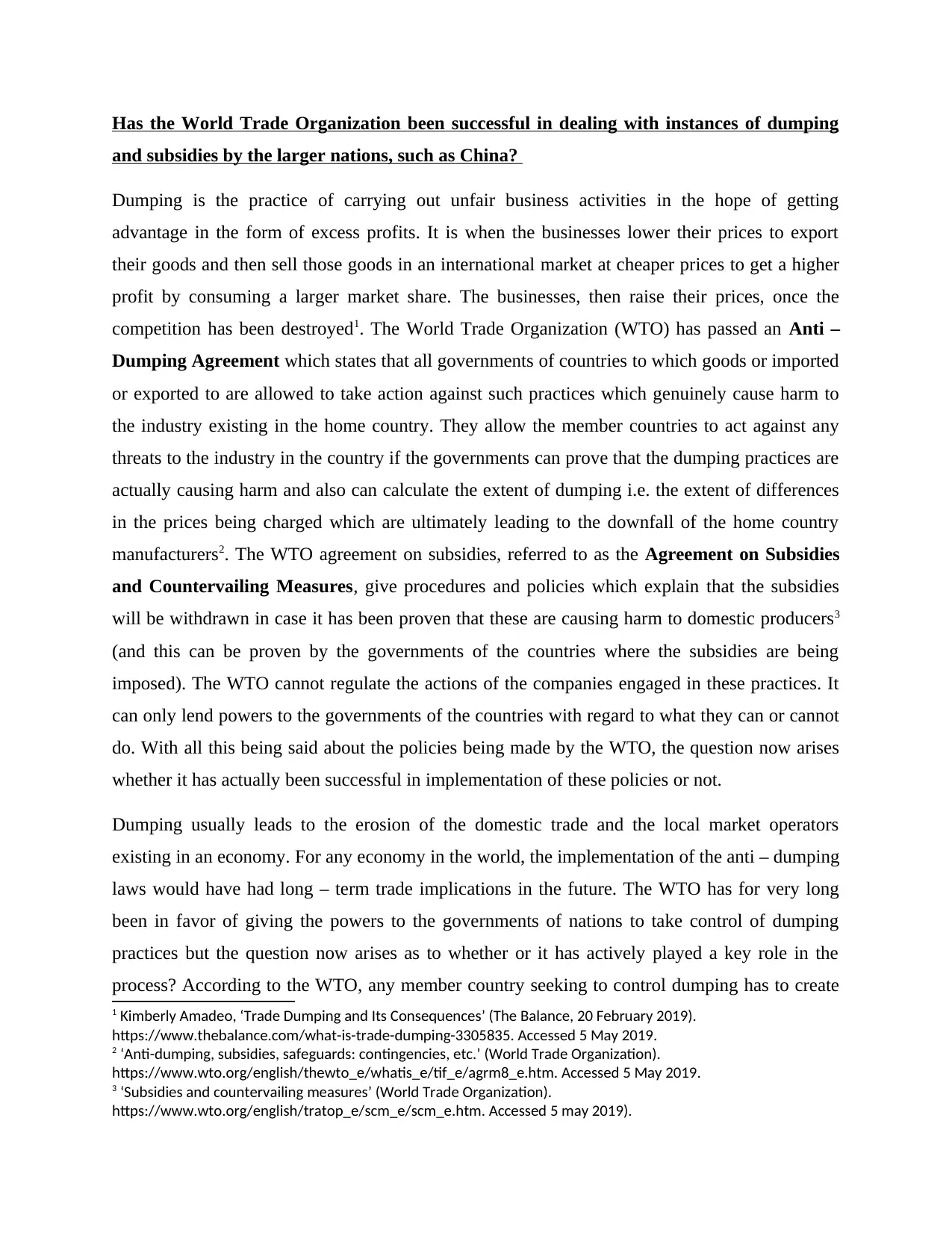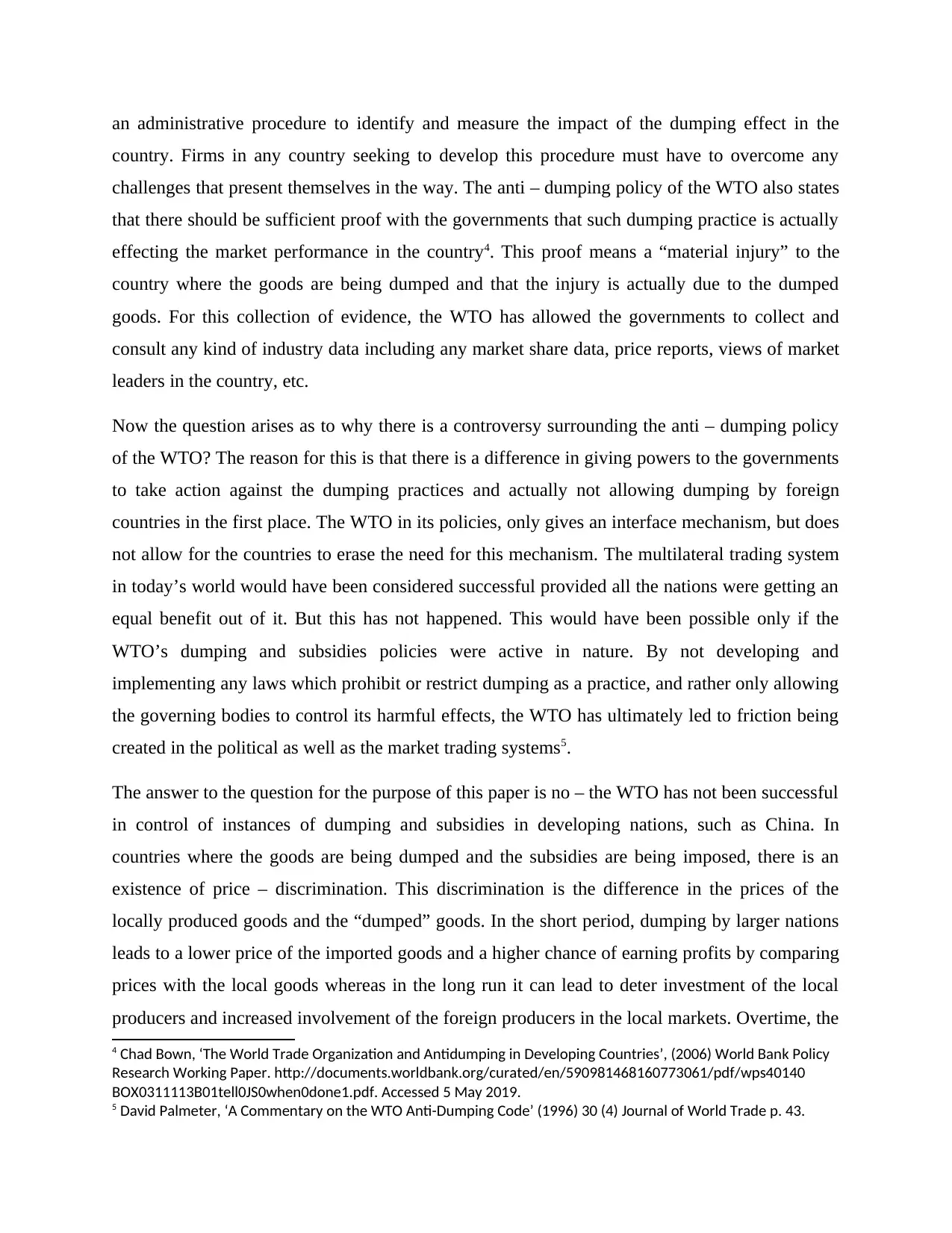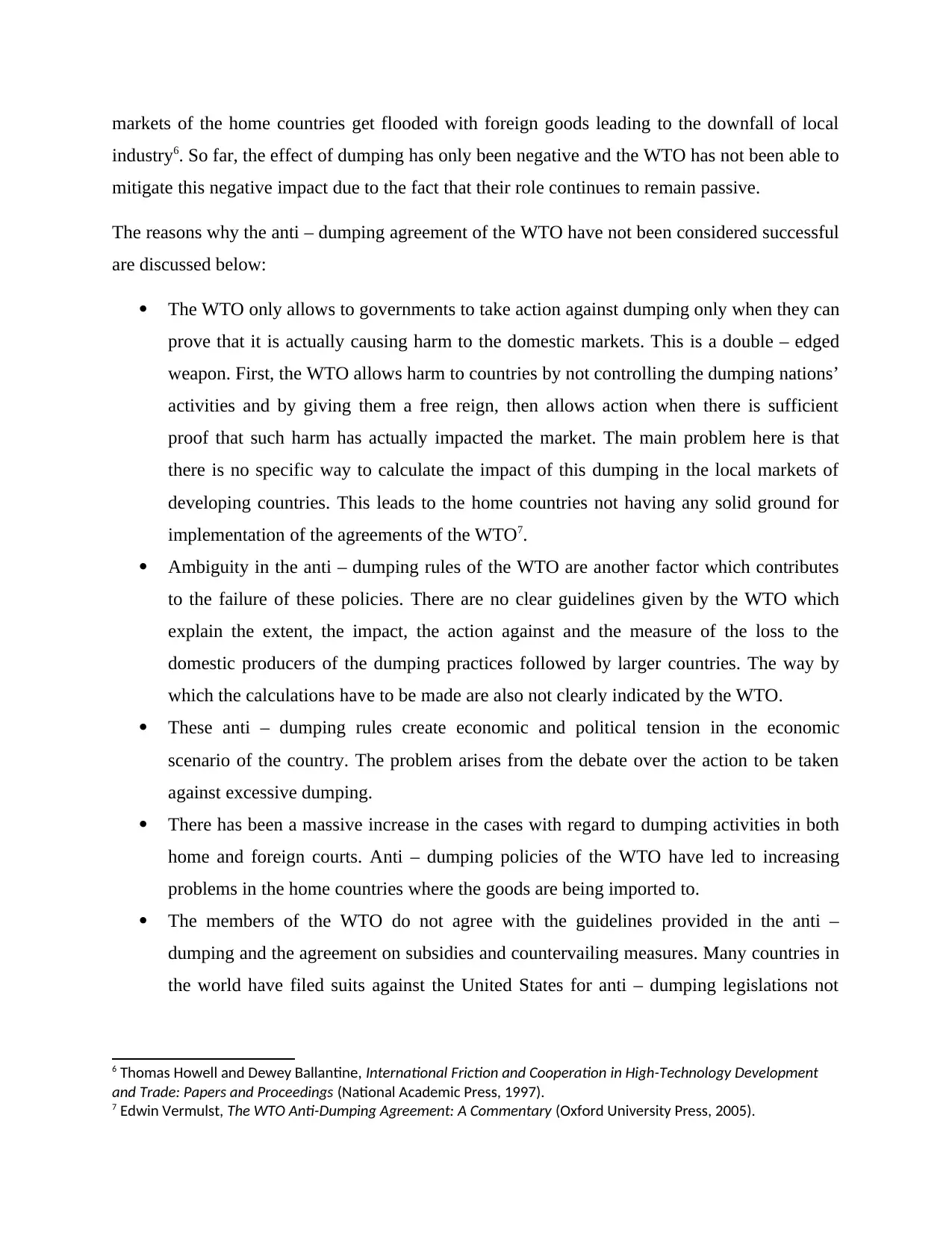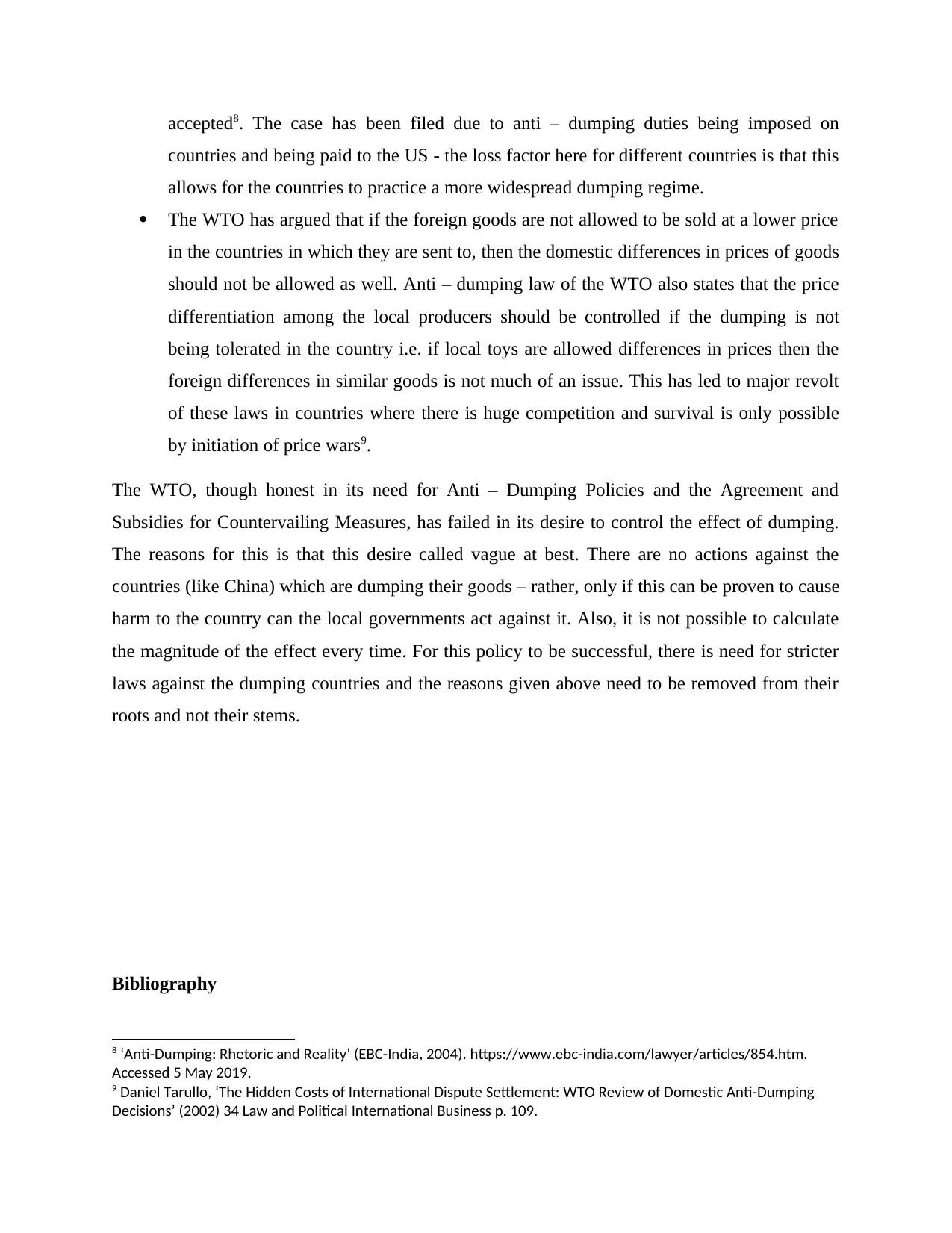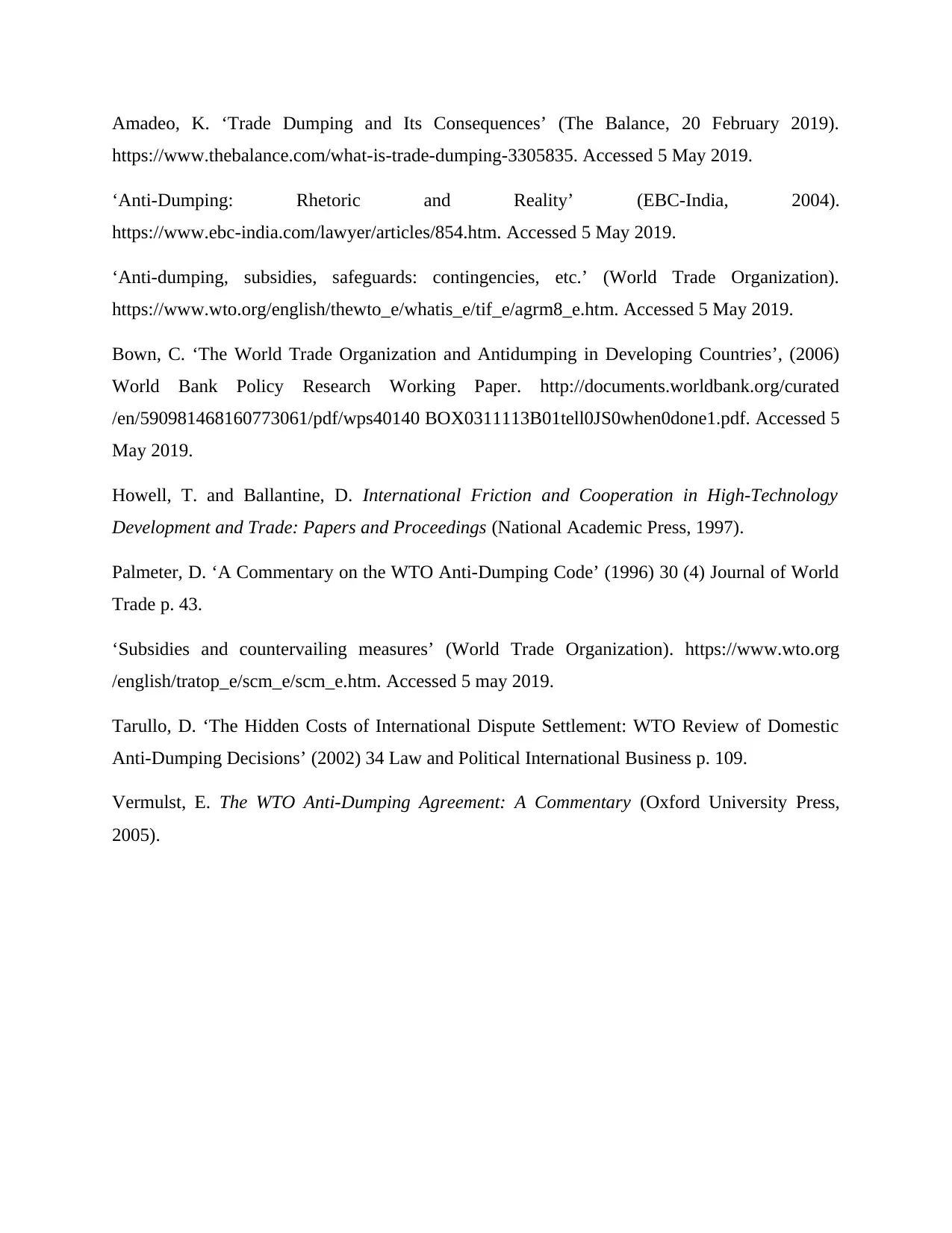This article examines the effectiveness of the World Trade Organization (WTO) in dealing with instances of dumping and subsidies by larger nations, specifically focusing on China. It discusses the definition of dumping, the WTO's Anti-Dumping Agreement, and the Agreement on Subsidies and Countervailing Measures. The article highlights the challenges and controversies surrounding the implementation of these policies and argues that the WTO has not been successful in controlling dumping and subsidies in developing nations. It also discusses the reasons for this failure, including the ambiguity of the rules, economic and political tensions, and disagreements among WTO members. The article concludes by suggesting the need for stricter laws and more proactive measures to address these issues.
![[object Object]](/_next/static/media/star-bottom.7253800d.svg)
![[object Object]](/_next/static/media/star-bottom.7253800d.svg)

